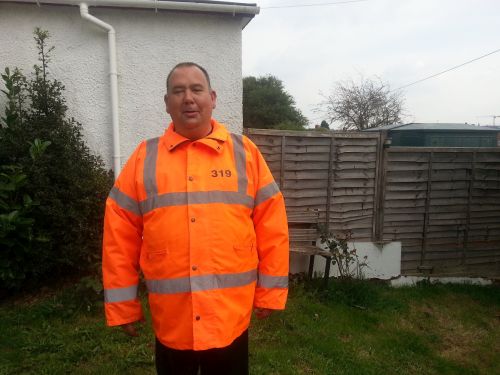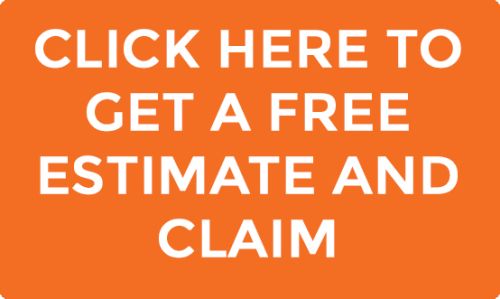Glyn's Uniform Tax Refund Story

Football fan Glyn Williams has been working as a Steward for both Bristol City and Bristol Rovers Football Clubs since about 2008. “It’s a great job,” he says. “It’s very rewarding. It mostly involves keeping an eye on the crowd, making sure they behave, escorting them from the premises if they don’t. It’s a bit like security work more than anything.
“The best thing about it is just getting out and doing the work. Get to see some of the games now and again, of course, which is a bonus.”
As part of his steward’s uniform, Glyn has to wear a heavy duty high visibility jacket which he regularly takes home to wash.
An animal lover, he currently lives in Southmead, Bristol with three dogs, two cats, a couple of chickens and some fish.
Glyn first heard about Uniform Tax Rebate from a friend, and then saw one of our adverts on the internet. “I’d never heard about them until somebody I work with mentioned it to me. Then I saw it on Facebook and recognised the name. I thought I’d give it a try and see if I got anything.”
After successfully claiming with Uniform Tax Rebate, Glyn received a rebate of over £250, which he spent on petrol and everyday shopping, including stocking up on food for all the animals. He also received a modified tax code and now saves over £100 a year in tax. “It was pretty easy,” he says. “I just filled out a form, then they sent me one back. I sent that away and it was done.”
"After he got notice of his rebate through the post he recommended Uniform Tax Rebate to his colleagues: “I told one or two people at work. Whether they took my advice or not I don’t know. I just left it down to them, told them to try it out.
“It’s great knowing it’s there, that you can claim back on your work stuff. That you can get a bit of money back and recommend it to other people. It really is a great service!”
How to claim: You can use the handy online calculator below to enter your details and make a claim within five minutes.
Each tax year will be recalculated if you enter a claim. This often identifies other overpayments due to incorrect tax codes, multiple employments, ceasing of job, etc. In these cases we can identify a much larger tax rebate. We regularly identify rebates of over £1,000 for customers who were originally estimated a lower amount.
If you claim now you will receive tax relief for the current tax year and future years that allowances continue to apply, paid through your monthly pay, no charge will be made on future tax relief or refunds.
You don't need to make any upfront payment to us in order for us to check if you are due a rebate.
We will ensure that your current year reliefs are correct and that your future year allowances are adjusted in line with the current year to ensure you are no longer being overtaxed. There will be no charge calculated for amending your current tax code and you will receive any tax refunds due in the current year and in future years directly.
If you are due a refund in the 4 previous tax years we will receive that refund from HMRC on your behalf and deduct charges in accordance with those quoted on the website prior to making a payment to you.
Standard deduction is 30% + £30, plus VAT, where due on any refund payment HMRC send us before passing payment on to you. Charges are limited to the previous 4 tax years we check and we will not make any deduction on future tax refunds.
If no refund is due the service is FREE to use. If a refund is due standard pricing is 30% + £30, plus VAT, where due on any refund payment HMRC send us before passing payment on to you. The charge is levied on all refunds received from HMRC covered by the claim period (4 previous years) regardless of reason. When entering a claim you agree to legally and unconditionally assign the rights to any refund for the previous 4 years to OTR, when payment is made to us we will forward the residual balance to you net of our agreed fees. On receipt of the form HMRC will manually reconcile (calculate) your tax liability for each year of your claim. If unreconciled differences are present on your taxpayer record for any year these differences may positively or negatively effect your tax liability on top of the effect of any allowances or expenses claimed for. HMRC perform a more basic automatic reconciliation on taxpayer records from April to November in the tax year following the end of each tax year. By submitting your claim you forgo the rights to any benefits that may have been accrued as a result of HMRC performing an automatic reconciliation, from the date your form is received by HMRC.

